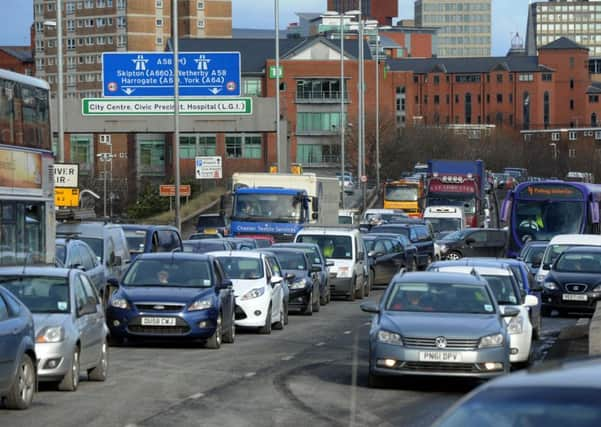Sam Hall: Clean up our act and drive dirty cars off the road


As the coal hazes vanished, the quality of life of the people living in cities received a significant boost.
But 60 years on, we face a new air pollution challenge. In the 1990s, policy-makers in the EU and the UK decided to promote the sale of diesel cars over petrol cars. It was believed that, over longer distances, diesel cars emit less carbon dioxide and so help to tackle climate change.
Advertisement
Hide AdAdvertisement
Hide AdWe now know that this case was exaggerated, but the surge in ownership of diesel cars did have an unintended side-effect. It increased emissions of nitrogen dioxide and particulate matter, both of which are harmful for public health.
A recent report by the Royal College of Physicians found that around 40,000 people die prematurely each year from these airborne toxicants in the UK.
The EU sets and enforces legally-binding air quality standards across all 28 member states, including, for now, the UK.
These legal limits have been transposed into UK law, and so will remain in force even after we have formally left the EU. The health and environmental imperative to tackle air pollution has not gone away because of Brexit.
So how should politicians respond to this challenge?
Advertisement
Hide AdAdvertisement
Hide AdOne important step is to implement the phase-out of coal-fired power stations as soon as possible.
Bright Blue has been among the leading voices in support of the Government’s decision to remove coal from our electricity generation mix by 2025. Burning coal causes 1,600 premature deaths in the UK.
So, as well as removing a big chunk of our carbon dioxide emissions, the coal phase-out will improve the quality of the air we breathe.
Up to 70 per cent of our air pollution, however, comes from road transportation. So any credible policy response must tackle this.
Advertisement
Hide AdAdvertisement
Hide AdLast year, the Government announced a new air quality plan to reduce pollution. The centre-piece was the introduction of five new low emission zones, including one in Leeds, by 2020. Councils in these cities are to be given new funding and powers to charge drivers of old polluting lorries and coaches that travel inside the designated area.
These welcome measures will help curb air pollution, but they do not go far enough with many urban residents projected to be exposed to unhealthy air for years to come. One big shortfall is that the Government has limited the number of cities that will get low emission zones.
Germany, for instance, where air pollution measures have been effective, has a national network of over 70 low emission zones. It’s often assumed that air pollution is a problem confined to London. But Sheffield, Leeds, Huddersfield and Wakefield all currently experience illegal levels of air pollution.
Some scientists now think that even these legal limits may not be tough enough to protect public health.
Advertisement
Hide AdAdvertisement
Hide AdAnother issue is that the Government has been too prescriptive by specifying how councils should configure their low emission zones.
For instance, it does not allow councils to charge old polluting cars. Again, the evidence from Germany is that all types of vehicles must be included if low emission zones are to succeed in safeguarding public health. London’s low emission zone did not charge private cars, and is widely regarded to have failed at reducing pollution.
Bright Blue has recently launched a campaign for all city councils across England to be given the powers and funding they need to establish low emission zones. This should be done in consultation with residents and businesses to ensure that low emission zones suit the individual circumstances and needs of the local area.
We are also calling for the Government to fund a new diesel scrappage scheme. Under this policy, owners of old diesel cars would receive a Government-funded discount on the cost of a new ultra-low emission vehicle.
Advertisement
Hide AdAdvertisement
Hide AdSales of electric vehicles are increasing significantly each year in the UK, and the trend is expected to continue. This policy would also benefit our automotive industry, which is already the leading manufacturer of electric vehicles in Europe. Low emission zones and a diesel scrappage scheme together are a carrot and stick approach to accelerate this transition.
The Yorkshire countryside is renowned for its air its healthy, invigorating and restorative air. The gulf between this and what is experienced in Yorkshire’s major cities is too great.
In the last century, we forced dirty factories out of our cities. This century we need to drive old polluting vehicles off our roads.
Sam Hall is a researcher at the Conservative think-tank Bright Blue.